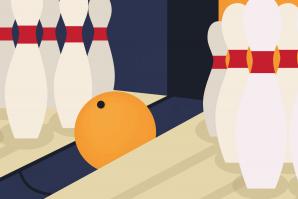The U.S. women’s gymnastics team dominated at this year’s summer Olympics in Rio de Janeiro. The team took home its second consecutive Olympic gold medal for the all-around team, fourth consecutive gold for all-around individual, and Simone Biles might be one of the greatest athletes of our time.
The team owes much of its success to Martha Karolyi, who has been the national team coordinator of U.S. women’s gymnastics since 2001. The New York Times published a beautiful piece on Karolyi early last month, outlining the shift she made in how the team trains. The crux of that shift is toward a “semi-centralized training system” that hinges on regular, weeklong training camps where the athletes are evaluated by the national team staff — in addition to all of the work being done with their personal coaches. Team captain Aly Raisman said: “It’s where we are evaluated and compared to each other, in a healthy way.”
I’ll be honest — I’ve never excelled at sports. Growing up, I was small and reticent, more inclined toward theater and debate than volleyball or soccer. But I did dance for almost a decade. As dancers, we were always comparing ourselves to one another — for poise, flexibility, strength and accuracy. That’s what Karolyi’s training camps reminded me of in my personal life, but it also applies to business.
We talk a lot about teamwork. Collaboration is the new it-kid in the business world. But a degree of healthy competition within a team is a good thing. The key is to balance competition with collaboration. Here are some things to keep in mind when adding a little friendly competition to your office:
Too much of a good thing goes bad: The majority of staff work should be either independent or collaborative, with just a dash of competition to keep things interesting.
Don’t kick people when they’re down: This should go without saying, but low staff morale and competition is a recipe for turnover. For example, if you’ve just been passed over for a big account, don’t use the next one to let employees compete for the best idea.
Use competition to jump-start the brainstorming process: We’ve all been there. You’ve been throwing ideas around for going on an hour, and everything seems to elicit the same sour expression from faces around the table. Competition may provide just the jolt of energy (and creativity) you need. Send everyone out on their own to brainstorm individually and ask for pitches by the following morning, and award the best idea.
Don’t get crazy with rewards: Something as simple as lunch on the company or an extra telecommute day should do just fine. You don’t want your staff comparing prizes and wondering why Jim got a Fijian cruise while Sandy was rewarded with a new stapler.
Play to a variety of strengths: If the competition is always the same, your winner may also regularly be the same person. That breeds resentment. Make sure your in-house contests cover a diverse set of skills so everyone has the opportunity to shine.
Give credit where credit is due: While obviously your winner deserves congrats, make sure to commend everyone who deserves it — and not only the ones who were almost at the top. Maybe you have a writer who pushed outside his comfort zone to come up with a solid visual concept. Even if it wasn’t the best idea, this person still deserves recognition. That being said, you can forgo the participation trophies.
Don’t keep score: This isn’t a tournament. Refrain from reminding people how often they’ve won and more importantly, how often they haven’t.
The 2016 Olympics were Karolyi’s last as national team coordinator for the U.S. women’s gymnastics team, and so the athletes’ many successes in Rio were bittersweet. However, she says she’ll likely still check in on those training camps — which will continue to be held at her and her husband’s ranch in Houston. Because true leaders never truly quit.
Recommended For You

The Power of Failure
Getting it wrong builds resiliency, courage and confidence
Working hard to achieve something new should not be fodder for punitive action; it’s the maintenance of a poorly functioning status quo that should be looked at with a sideways glance. Perfection lives on the same continuum as failure. In life, as in work, we learn painfully but fully from our failures — that is when we grow.

What Distinguishes a True Leader?
Someone who can do these four things
I am an intrepid student of leadership. I read books on the subject, I seek out speakers who are experts in the field and I admire leaders when I see them in action — and try and take from their repertoire to add to my own. I have been lucky enough to have been surrounded and influenced by true leaders from a very young age and throughout my professional career.



